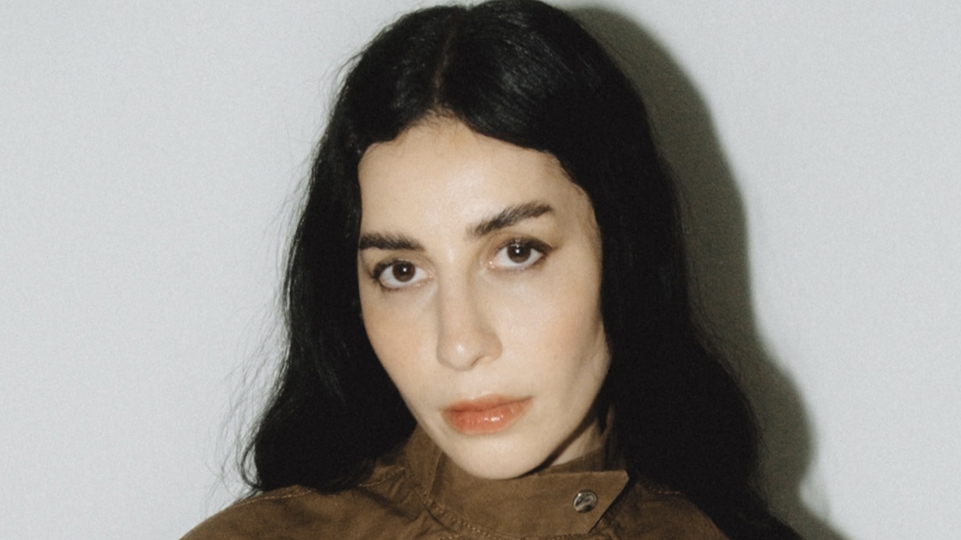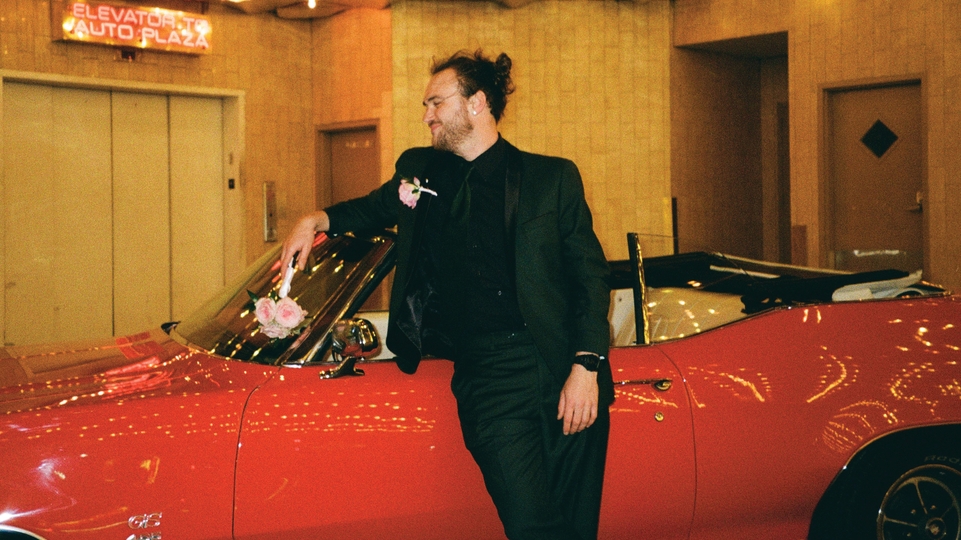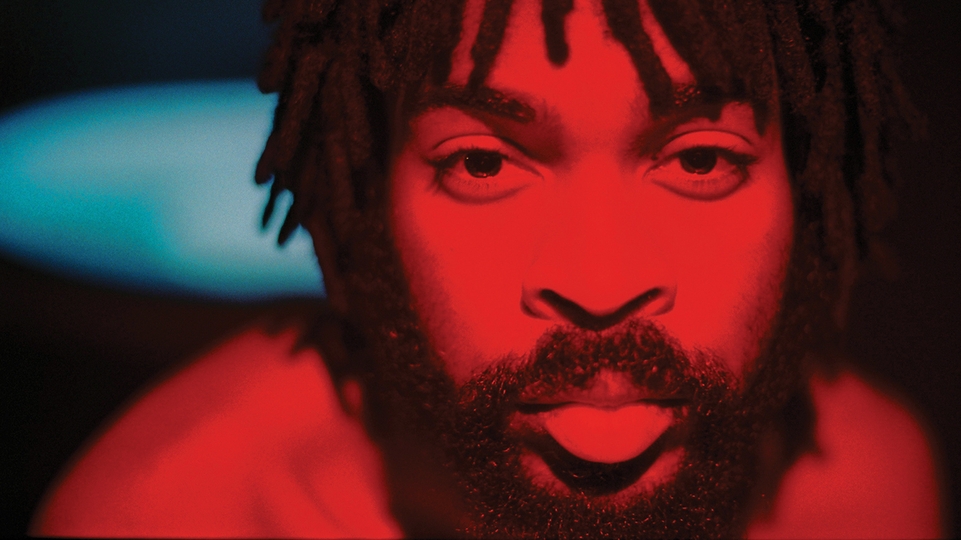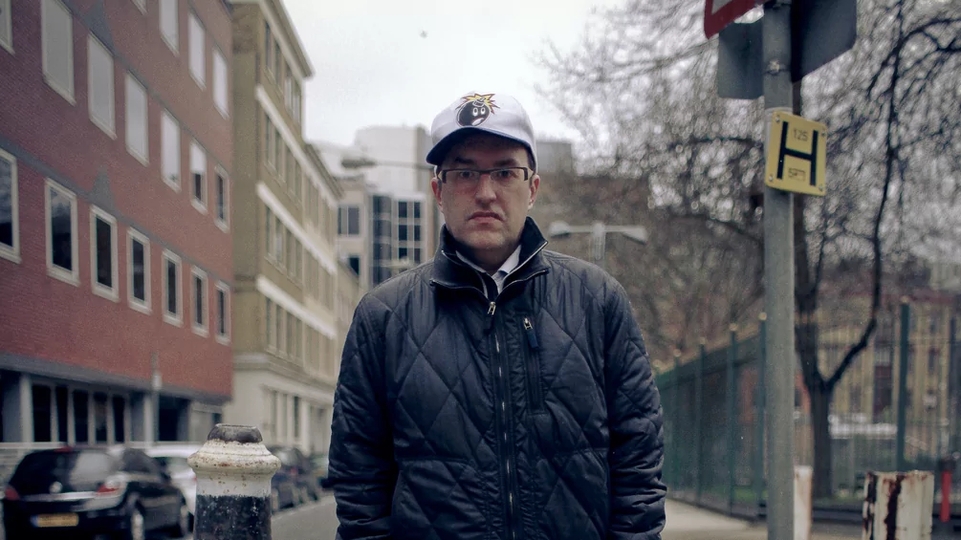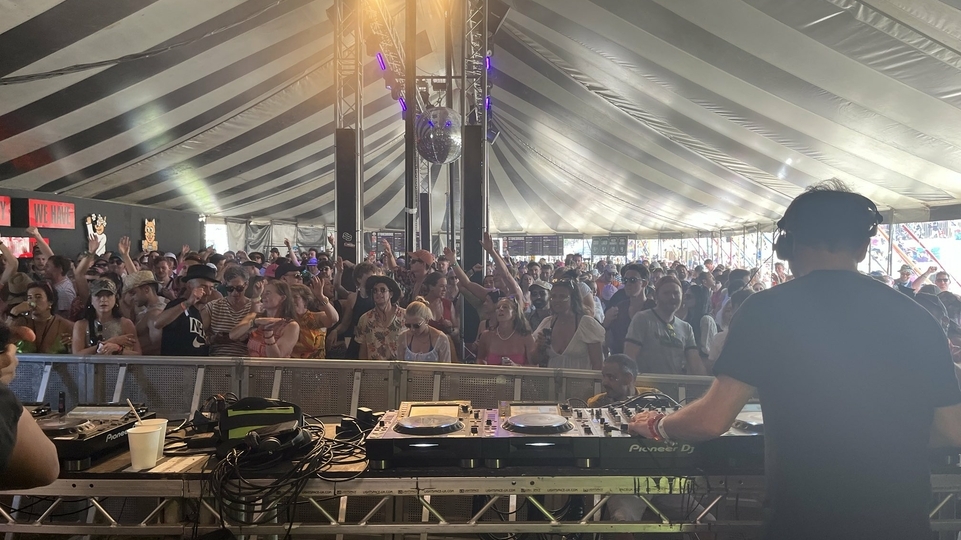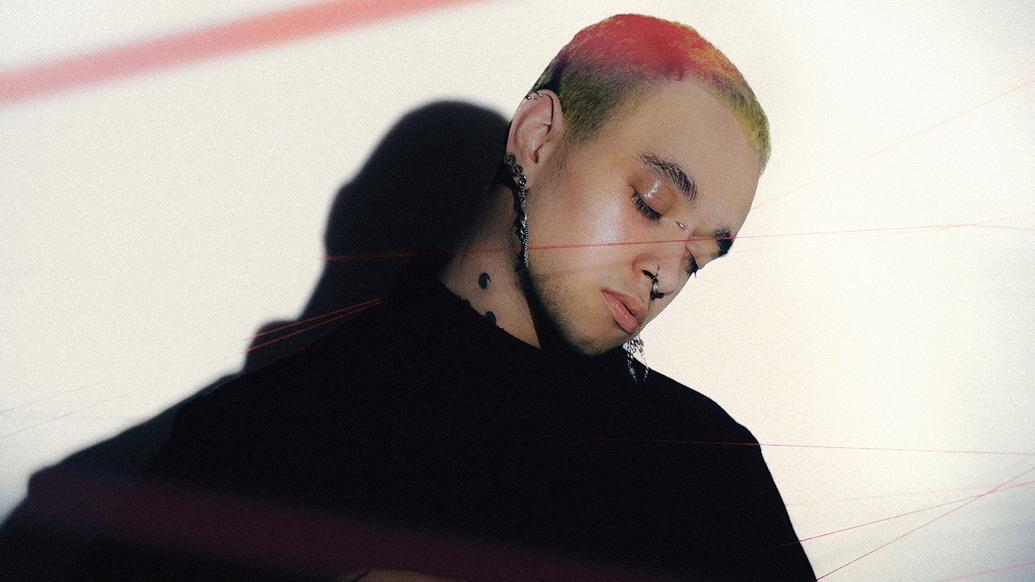
Recognise: IMANU
Rotterdam's IMANU crafts tracks and DJ sets that do away with genre, choosing instead to surf through styles, tempos and textures with a focus on emotional impact. Alongside a hair-raising Recognise mix, he speaks to Ben Hindle about changing up his production process, taking creative risks, and visualising his sound
“Imagine a blood-covered rose, and take a black and white photo of it. That’s it, that’s my music,” explains IMANU backstage at his 2023 headline ADE show at Amsterdam’s Melkweg. We’re discussing how he defines his sound, which, since launching the moniker in 2019, has become ever more expansive and emotionally charged. Now resonating with audiences like never before, it’s taking him around the world and placing him at the forefront of a Gen Z music movement that places feeling above function; connection over categorisation.
Born Jonathan Immanuel Kievit, the Rotterdam-based artist first found fame as a teenager in the mid-2010s under the alias Signal. His intricate productions soldered high-tech drumwork to growling industrial noise and heavy sub pressure, and for the latter half of the decade he was hot property, releasing on labels like Kasra’s Critical Music, Friction’s Shogun Audio and DIVIDID among others. But in 2019, he decided it was time for a reset. Signal was put on ice, and IMANU was born. When we ask what gave him the confidence to switch things up when they were already going so well, his answer is simple. “It wasn’t confidence, it was necessity,” he says. “I wasn’t happy.”
IMANU — derived from his middle name — has since allowed Kievit total freedom of expression. He can and does still produce first-class 170+ BPM weapons, but more and more, tempo and genre tropes have become almost insignificant factors, as more malleable concepts like contrasting shades, rich textures and emotional depth have taken hold. “There’s not really any pressure,” he explains. “I could just make whatever I want. And it’s really good... it’s actually made me enjoy making music a lot more.”
The first IMANU drop came via Noisia’s VISION label, giving the new project one of the highest stamps of approval possible in Dutch — and indeed any — bass music. The ideal introduction, it matched supercharged dancefloor cuts like ‘Nonplus’ and ‘All Talk’ with the emotional rollercoaster of ‘Dream Mentor’ and the haunting, cinematic splendour of downtempo track ‘Flower Veil’, an early excursion into vocal work that would be a taste of things to come.
His next VISION EP took another step, wrapping more heartstring-tugging chords around abstract beats — and at one point even muted four-to-the-floor hardcore — while still operating at a d&b tempo.
In 2021, he struck gold with his remix of Apashe & High Klassified’s ‘I’m Fine’. Originally a woozy trap track that alternates between tip-toeing delicacy and moments of boisterous brass, in IMANU’s hands it became crisp, soulful, dancefloor electronica. A bit Disclosure, a bit Porter Robinson, a bit Four Tet, the rework’s lush synth-scape and driving beat proved the ideal partner to Cherry Lena’s vocal, but above all it mixed melancholy with euphoria, a strange but irresistible combination that’s become the cornerstone of IMANU’s sound. To say it connected with listeners is something of an understatement; at the time of writing, it sits at nearly 23.5 million plays on Spotify alone. And when we see him drop it during his ADE set, a sudden switch from intensive drum & bass, it gets one of the most immediate and visceral reactions we’ve ever seen, the entire dancefloor leaping into the air, arms raised, in unison.
The following year came his debut album ‘Unfold’; 14 tracks that sprawled from glitchy opener ‘It’s Our Destiny’, with its video game-esque perc and chipmunk vox, across the globular lows and jittering highs of ‘Shoyu’, the sultry ‘Syrah’ with The Caracal Project and Maria-Lea, more chunky but soft 4/4 tracks like ‘Pillow Talk’ and ‘Origami’, and much more. On listening, it’s clear it’s the realisation of what he set out to do when he first launched IMANU.
It’s the sound of a producer doing whatever he feels like, which adds a layer of authenticity that’s often missing in a digitised world driven by streaming data. It’s something real and human, the type of connection so many people crave now — and perhaps that’s why so many people have connected with his music. When we put this to him, he’s considerably more pragmatic in his response, however. “I think also it’s just the fact that I’ve been doing a lot more vocal stuff,” he says. “People love vocals. I guess it’ll speak to the heart a lot easier than just straight notes.”
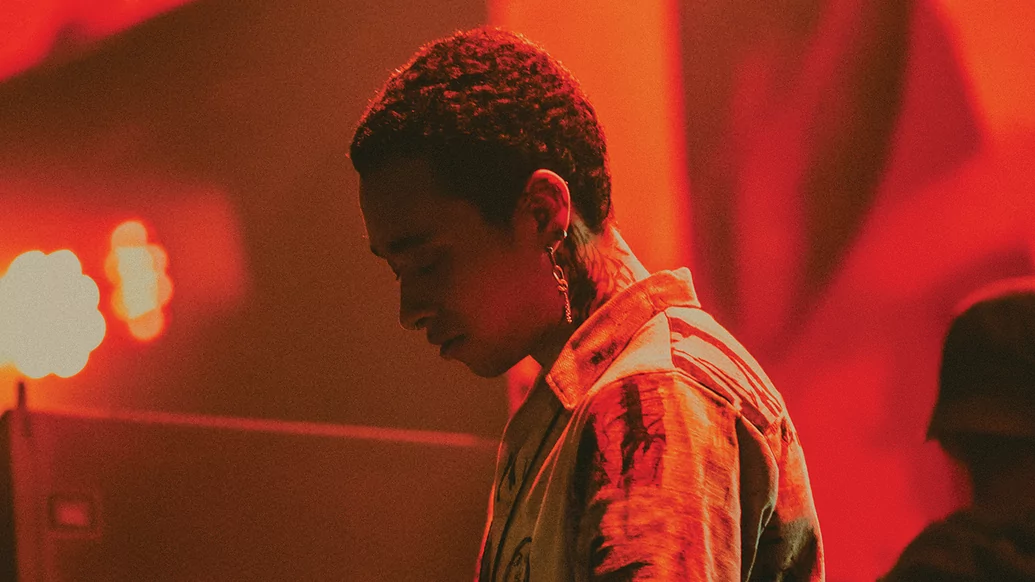
After the highs of ‘Unfold’, he struggled production-wise. “I had massive writer’s block; just made nothing,” he admits. He planned an EP — October’s ‘Paradise’, which launched at ADE — but it took a shift in his process to get things going again. “I started writing moving from left to right... so starting with the first sound and ending with the last sound, instead of just starting in the middle, which is very common,” he explains. “I think that if you work left to right, you can kind of just hear what needs to be done.” He walks us through the process, layering up chords and song elements — a Reese bass for example, then a vocal, a build up, each decision directing the next. “Then because I have all that, I know what the drop has to be, because it’s already in my head. I just have to put it down,” he continues. “I think it makes everything sound more logical.”
‘Paradise’ again sees IMANU blurring genres and finding common ground instead via mood and sound palette. ‘Aching (On A High)’ is epic, propulsive and entrancing to rival Bicep, with a killer vocal from LIA. ‘Rush’ with Zeds Dead takes a similar route with a more laid-back beat, while ‘Of Two Minds’ with Rhode applies the concept at a frantic, attacking pace. And those are just the first three of eight tracks, with a wide variety of club-ready rhythms forming the backbone to tender vocals and soaring atmospherics throughout.
Had IMANU been making this in the ’00s it probably would have been dubbed emotronica, which brings us back to the image of the bloody rose: “I started describing [my music] with a photographic image in my head, because I don’t want to say drum & bass, I don’t want to say EDM, I don’t want to say dubstep. I make all those things, but those tunes just happen to be dubstep or drum & bass — that is the least important part of the song. That’s my version of describing melancholy, I guess,” says Kievit. “The thing is that I always imagine colours and images whenever I listen to music. It’s not like [synaesthesia], I don’t have that, but when I’m listening to a song I feel like I can imagine a red, and I can kind of envision a certain mood in my head.”
Playlists moved beyond genre a long time ago, but we like the idea of defining music without words, imagining how a record shop might look if the releases were grouped by the kind of imagery they conjure in the head of the listener. “It doesn’t really make sense how, like, SpectraSoul are the same genre as Macky Gee, but somebody like Ternion Sound and Alix Perez is not. Why? That is the same genre, one is just faster,” continues Kievit.
This matching of vibe rather than genre is something he’s trying to achieve across his events too. His ADE party line-up is a wild combination, moving from the speaker-shaking dubstep of SICARIA b2b Visages, through a live d&b PA from singer LaMeduza, right up to electro breaks outfit The Glitch Mob.
“I feel like people like it, it’s just I think people are scared to do it,” he says. “But every time I do it, it seems to do well, like putting on nights like these and stuff. So I don’t understand what’s stopping others from doing it.” He credits the Amsterdam crowd with being particularly open, admitting it definitely wouldn’t work everywhere. He talks about multi-genre line-ups being more normalised in the US, whereas in Europe people can be “scared of taking risks”.
“I remember even a few years ago, I would play like one halftime song in my set and people would just leave the room. Like, Jesus, why? You don’t wanna hear one song that’s not what you expect? It’s nuts to me.” Clearly things have changed dramatically since that point, as the heaving crowd we witness laps up his stylistic twists and turns.
In another twist, last year saw him launch the 14SAINTDENIS fashion line with Cynthia Liu — named for Saint-Denis, the capital city of Réunion Island, where IMANU was born — with a full 20-piece collection. He’s excited to move forward with that project, mentioning plans for collaborative capsules and a run of handmade leather boots which have since dropped online. He explains how he takes inspiration from anywhere and everywhere, but particularly chimes with colour schemes that exist in nature, and explains how it’s been a “humbling” experience — “Like being introduced to people in the fashion world, and now I’m the fucking noob. I kind of forgot how that felt.”
Having spent the end of 2023 touring the States and Down Under, and clearly comfortable with the creative freedom he’s worked hard to procure, he’s taking things at his own pace. “I just make what happens, whatever comes out of me,” he says when we ask what’s next. “Literally, I'll just sit down, and I'm not gonna force anything. What is in me right now? I’ll try to make that, and just see where it takes me. I have time now, to find the next me.”

